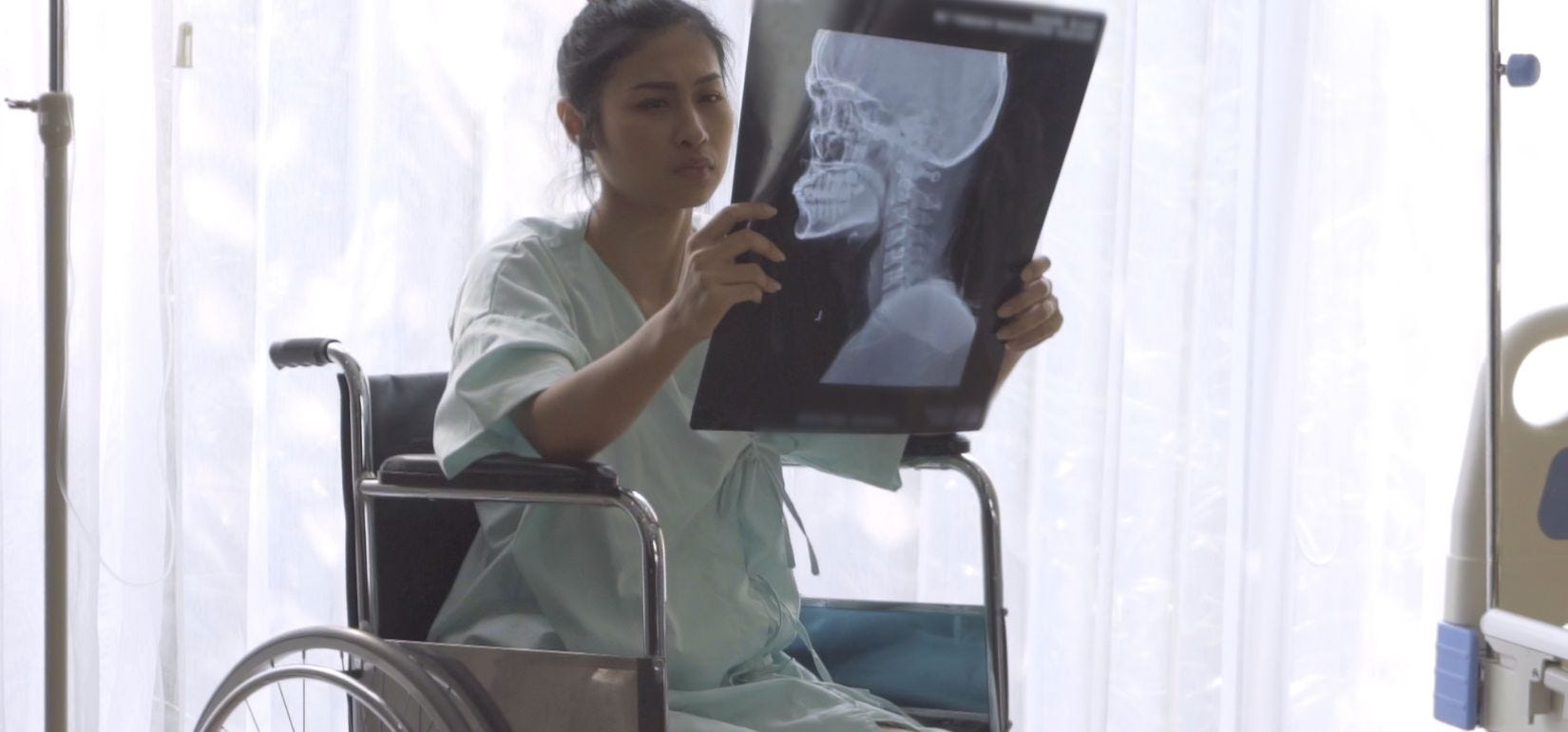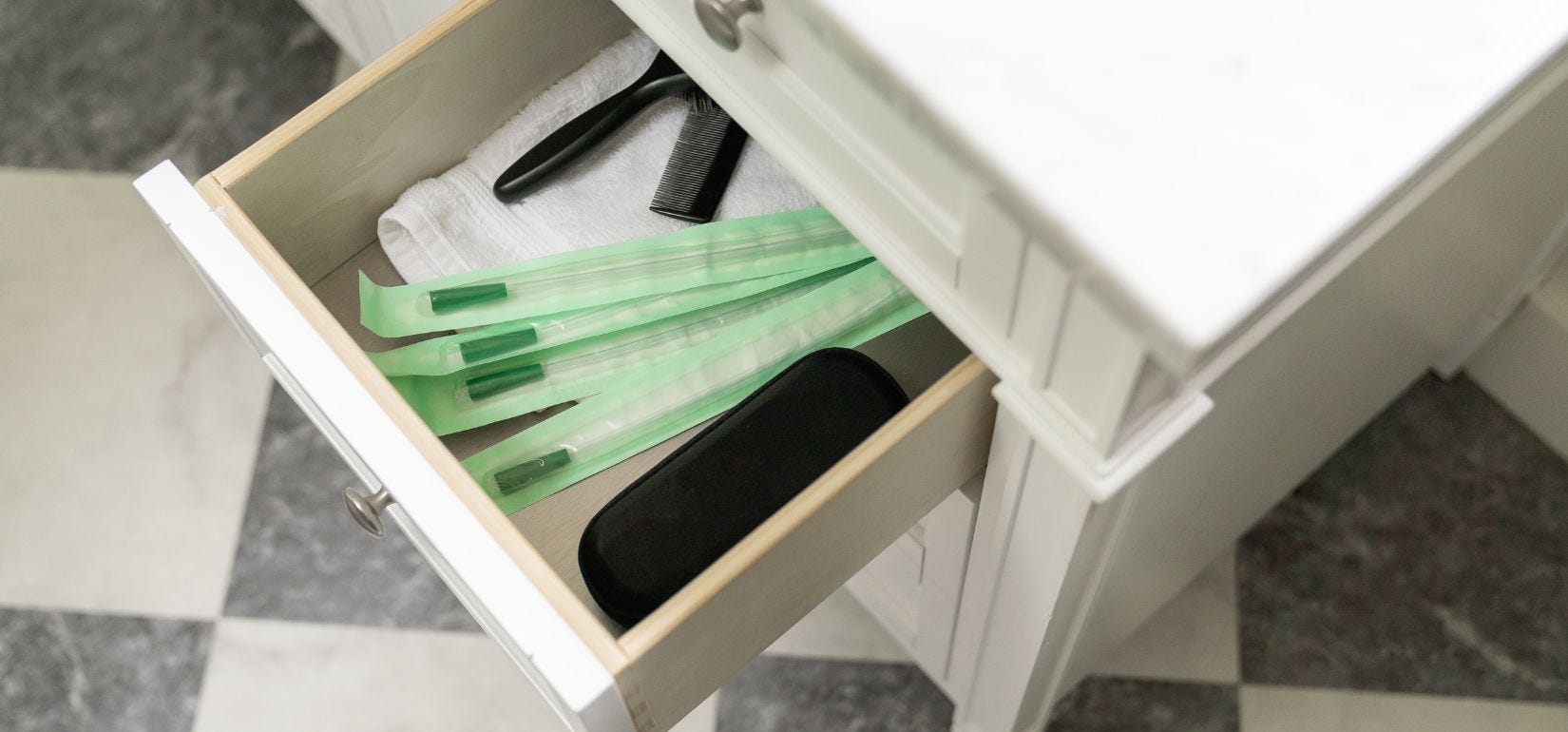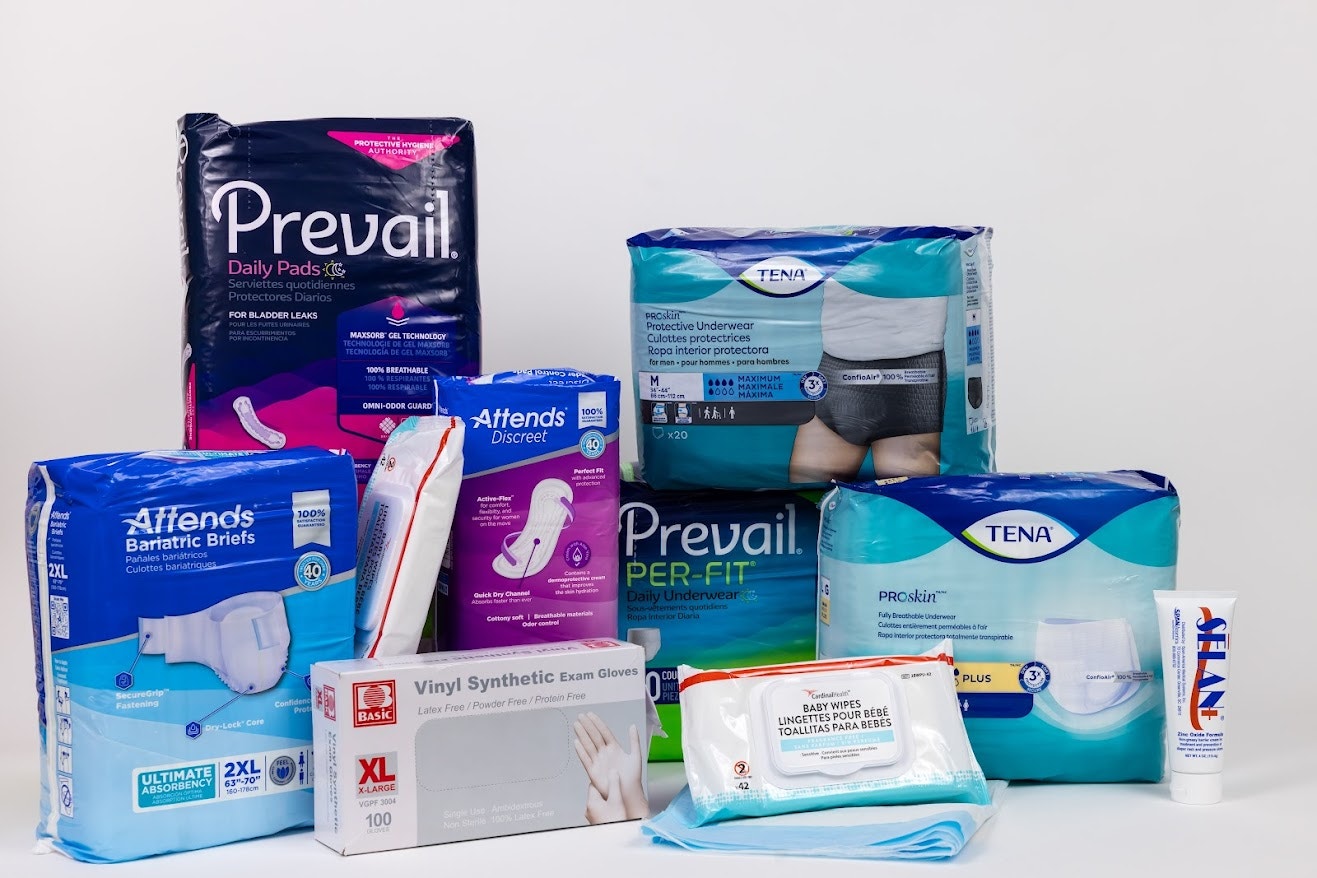From mobility issues to emotional and cognitive impairment, brain damage changes the way someone would usually go about their daily life.
This type of injury can also change the level of continence a person has, causing a loss of bowel and bladder control.
And while managing incontinence can be difficult on its own, it can be more difficult to navigate if a loved one suffers from a traumatic brain injury. In this post, you’ll learn:
- What a traumatic brain injury is.
- How a brain injury can cause incontinence.
- How to care for a loved one with incontinence and a brain injury.
- How to get free incontinence supplies through insurance.
What Is a Traumatic Brain Injury?
Check Your Eligibility
2 Easy Steps
From catheters to pediatric and adult incontinence supplies, discover the continence care essentials covered by your insurance.
A traumatic brain injury (TBI) happens when brain damage occurs, called acquired brain injury, due to a violent head injury or from brain illnesses or strokes. Such force can be exerted by sports accidents, objects piercing your brain tissue, car accidents, or other strong impacts.
Immediate symptoms of TBI include:
- Confusion
- Delayed speech.
- Blurry vision.
- Crying or irritability (pediatric brain injury).
Along with these immediate symptoms, there are a slew of other cognitive, behavioral, and physical symptoms that can develop over time, as well as incontinence.
How TBI Affects Continence
When your brain is injured, the connection your brain has with your bladder and bowels can be damaged.
Normally, our brain and urinary system are connected through our spinal cord. Our bladder and bowels send signals telling the brain when they’re full, allowing us to have control over them.
When a TBI occurs, this signal pathway may be damaged or become non-existent, resulting in urinary incontinence or fecal incontinence. Urinary incontinence is the loss of bladder control, while fecal incontinence is a loss of bowel control. The prevalence of urinary incontinence is high in the first few weeks of a brain injury occurring but can be a permanent symptom.
The types of bladder dysfunction that can develop include:
Stress Incontinence: Leaking urine when you sneeze, cough, or laugh.
Overflow Incontinence: Leaking urine after voiding your bladder.
Urge Incontinence: Feeling the frequent and sudden urge to urinate.
Functional Incontinence: Knowing you need to use the restroom, but not being able to do so based on cognitive or physical issues.
A person with TBI can also develop fecal incontinence, which results in losing fecal matter unexpectedly.
Complications with incontinence and TBI include:
- Skin irritation.
- Pressure ulcers (lesions / bedsores).
- Skin infections.
- Leaking
- Urinary tract infections (UTIs).
- Bladder stones.
- Constipation
- Urinary retention.
- Kidney failure.


How to Manage Incontinence & TBI
While it may be a challenging path back to continence with a brain injury, it is possible if you help your loved one manage their incontinence the right way; One study of TBI patients showed that incontinence symptoms greatly improved after rehabilitation.
If you're caring for a loved one with TBI- either in the first few weeks of the injury or after- you can use these care tips to help manage their incontinence.
1. Use Continence Care Products
Continence care products, such as catheters, adult briefs, underpads, or protective underwear may help manage symptoms of incontinence. Certain products are more suited for those who are less mobile, such as underpads, adult briefs, and catheters, while other products, such as bladder control pads or protective underwear, can be used by those who are more mobile.
Aeroflow Urology may be able to supply you with free incontinence or low-cost catheter supplies every month. All you have to do is fill out our Qualification Form to see if you or a loved one is eligible for coverage. If they are, we’ll ship free incontinence supplies directly to their home on a monthly basis. We'll also help with refilling their products in a timely manner so they don't run out of supplies.
2. Speak With Your Loved One's Healthcare Provider
While it may feel embarrassing to talk about at first, you should always encourage your loved one to speak to their healthcare provider about incontinence. Incontinence is very common, especially in those who have experienced a TBI.
A healthcare provider may be able to help you and your loved one come up with a plan to get their continence back on track so they regain the function of their urinary system or bowel function. They may also give your loved one certain medications to manage incontinence symptoms.


3. Try Bladder Training
Bladder training can help your loved one regain control of their bladder by teaching it how to hold in waste when the bladder contracts and they feel the urge to go.
To do this, your loved one should hold in their urine for 5 minutes when they feel the urge to void. Then, increase that time by increments of 5 minutes, until they're able to hold their urine for longer. It’s important to note that this will only be successful if your loved one tries to practice it frequently.
4. Do Pelvic Floor Exercises
Pelvic floor exercises can help your loved one strengthen their pelvic floor and bladder over time. To perform them, squeeze the pelvic floor muscles and contract them for as long as possible, holding for about 20 seconds and then releasing.
5. Eat a Healthy Diet
Fill your loved one's diet with foods that are good for their bladder and bowel health. This includes fibrous foods, fresh fruit, vegetables, and whole grains. Avoid bladder irritants, such as caffeine, alcohol, carbonated drinks, and nicotine. Avoid foods that will cause constipation or bowel irritation, such as greasy, fried, or highly-processed items.
6. Be Patient
Recovering from injuries takes time. Be patient while your loved one adjusts and ensure they're taking the proper steps to regain continence.
Qualifying for Continence Supplies Through Insurance
If your loved one has experienced TBI and incontinence symptoms are present, they may be eligible to receive free or low-cost continence care supplies through your insurance plan.
To see if your loved one qualifies today, fill out the Eligibility Form. We will send their incontinence products directly to their home in unmarked packaging each month, so they won’t have to worry about going to the store for more supplies while they recover.
Incontinence After Brain Injury: How to Regain Control. (2021, July 29). Flint Rehab. https://www.flintrehab.com/incontinence-after-brain-injury/#:~:text=In%20severe%20cases%20of%20incontinence
Leary, S. M., Liu, C., Cheesman, A. L., Ritter, A., Thompson, S., & Greenwood, R. (2006). Incontinence after brain injury: prevalence, outcome and multidisciplinary management on a neurological rehabilitation unit. Clinical Rehabilitation, 20(12), 1094–1099. https://doi.org/10.1177/0269215506071258
Information provided on the Aeroflow Urology website is not intended as a substitute to medical advice or care from a healthcare professional. Aeroflow recommends consulting your healthcare provider if you are experiencing medical issues relating to incontinence.








